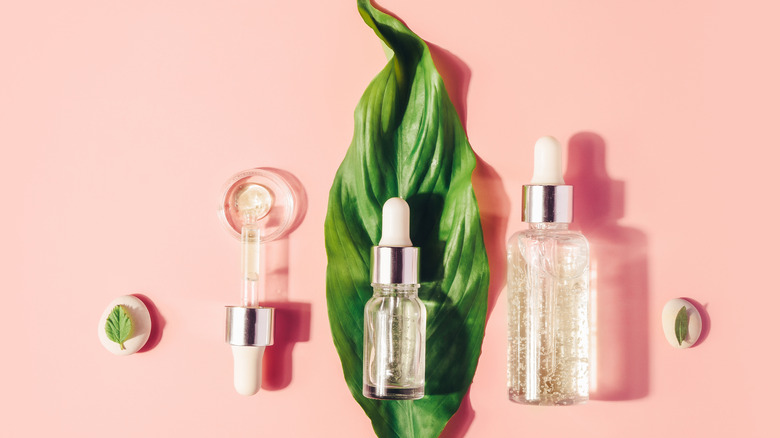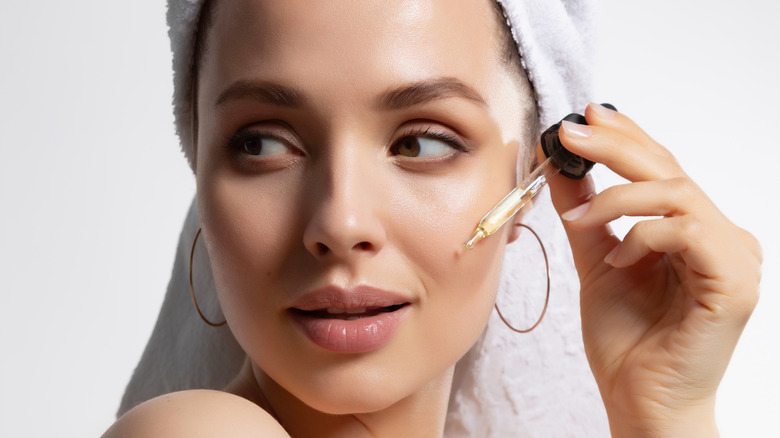The Real Difference Between Retinol And Retin-A
There is no denying that skincare is tricky. Ingredients can be hard to pronounce and even understand; some shouldn't even be used in combination with others. You're even supposed to do your skincare routine in a certain order to get the best results.
One ingredient we've all heard of (and are hearing more about these days) is retinol. You can buy products infused with retinol or simply buy a retinol serum. But what is Retin-A? Retin-A is an ingredient whose name you may not be familiar with unless you're an avid skincare researcher or you're in the skincare field itself. Simply, retinol and Retin-A are both forms of retinoids, a category of compounds that come from vitamin A, (via Verywell Health). Verywell Health also explains that as a class of compounds, retinoids can smoothen and brighten your skin and make it firmer, too. What's more, retinoids increase collagen production and cell turnover rate, which means they can help acne.
You may now be wondering what the difference between retinol and Retin-A is if they're both retinoids. If so, keep reading because we've got you covered!
The difference between retinol and Retin-A may not be what you think it is
The biggest difference between retinol and Retin-A is simply that retinol is a natural type of vitamin A while Retin-A is a synthetic type of vitamin A. In fact, Retin-A is actually the brand name for a medication called tretinoin, (via Verywell Health). The outlet explains that the difference then is that the body has to break retinol down into retinoic acid before it can use it, while Retin-A, as a synthetic version, already is retinoic acid and therefore is immediately put to use by the body. Because of this, retinol is considerably weaker than Retin-A, though the two forms of vitamin A technically do the same things for the skin.
Because it's stronger and distributed to the skin as retinoic acid, Retin-A is great for your skin. In addition to its aforementioned benefits, it can prevent wrinkles, exfoliate your skin, and provide antioxidants, (via Byrdie). However, Byrdie also warns that you should only use it once a day so as not to irritate your skin and never in combination with vitamin C, physical and chemical exfoliants, or any other retinol formulas. These things could neutralize the effects you're looking for or cause irritation, and we don't want you to experience either of those things.
All in all, there aren't too many differences between the two, but the differences these two forms of vitamin A have are important to dissect.

